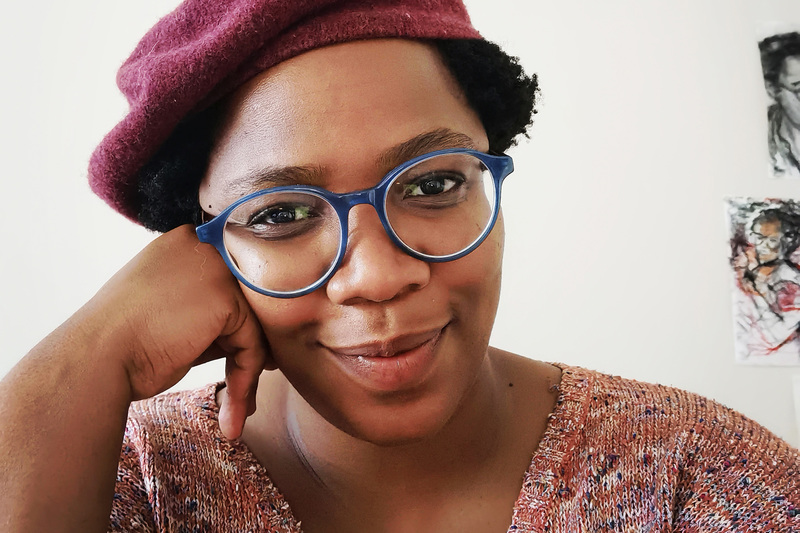Pumelela Nqelenga joins Centre for Theatre, Dance & Performance Studies
03 May 2021 | Story Robert Morrell. Photo Supplied. Read time 4 min.
Pumelela ‘Push’ Nqelenga arrived at the University of Cape Town (UCT) in 2021 from the University of KwaZulu-Natal (UKZN), where she had already cut her teeth in the world of academia. She combines an interest in performance with a commitment to indigenous knowledge and expression.
She is moved by questions such as: “What do we mean by African scholarship in theatre?” and “How can we approach theatre studies through African roots?” She explained that she has been inspired by her grandmother, who was an Igqirha (traditional healer).
“I am intrigued by the dancing and the performance of Amagqirha. All my life I just wanted to dance and perform like that.”
“I am intrigued by the dancing and the performance of Amagqirha. All my life I just wanted to dance and perform like that.”
The road to becoming an academic
In 2015 Nqelenga graduated with a Masters in Drama (Contemporary Performance) with distinction from Rhodes University in Makhanda, Eastern Cape. Prior to that she had completed a Bachelor of Journalism and Media Studies majoring in television and new media as well as an honours degree in drama majoring in physical theatre, applied theatre and contemporary theatre.
Nqelenga has a deep interest in contemporary Nguni performance, site-specific performance and the role of the black female body in performance. She has created lecture series both at Rhodes University and UKZN, including Oral Poetry in South African Contemporary Theatre and the Black Female Body in Performance.
Last year she curated a site-specific performance of Return to My Native Land by Aimé Césaire for the Decoloniality Summer School at UKZN in Durban. In 2020 Nqelenga was also appointed as acting director of the Hexagon Theatre at UKZN (Pietermaritzburg).
The challenges of teaching
Nqelenga draws on the decolonisation moment to pose these questions: “How do you teach a discipline which is innately about the body when the bodies you are teaching are brutalised and in both physical and metaphorical pain?” “How do you shift a curriculum to create one where the world of the proscenium arch does not limit the black imaginary and frees marginalised narratives from a cripplingly reductive vortex and instead opens a world of discovery?”
At UKZN she said she was moved by students’ passion and curiosity to explore these questions and gave space for a process to unfold because “an artist activist does not profess to know the answers”.
Being at UCT
With lockdown and being based in Pietermaritzburg, it wasn’t an easy decision to apply for a job in Cape Town. Here is how Nqelenga describes the process.
“A flame brought me to UCT. Our family home burned down in 2020; fundamentally it felt like the world where theatre was born for me was destroyed. I went home to the ruins of the family home in Mdantsane in the Eastern Cape, and from this place of personal devastation I made the choice to leave UKZN for UCT.
“I wonder if our ancestors are speaking to us of cleansing and rebirth and are reminding us that we are forever intertwined in a cycle of destruction and renewal.”
“In the week that I packed up my flat in Pietermaritzburg, the media blazed with the news that fire had gutted UCT. In this same week my mother sent me a photo of our family home rebuilt and ready for reoccupation.
“I wonder if our ancestors are speaking to us of cleansing and rebirth and are reminding us that we are forever intertwined in a cycle of destruction and renewal. I have no answers, but as an artist activist I commit to playing with the questions.”
 This work is licensed under a Creative Commons Attribution-NoDerivatives 4.0 International License.
This work is licensed under a Creative Commons Attribution-NoDerivatives 4.0 International License.
Please view the republishing articles page for more information.






